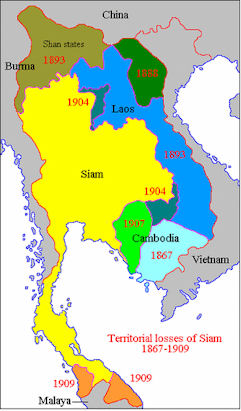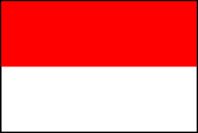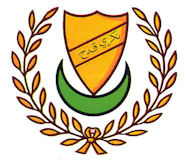

Zitierweise / cite as:
Payer, Alois <1944 - >: Chronik Thailands = กาลานุกรมสยามประเทศไทย. -- Chronik 1791 (Rama I.). -- Fassung vom 2015-08-16. -- URL: http://www.payer.de/thailandchronik/chronik1791.htm
Erstmals publiziert: 2013-06-28
Überarbeitungen: 2015-08-16 [Teilung des Kapitels] ; 2015-07-02 [Teilung des Kapitels] ; 2015-05-10 [Teilung des Kapitels] ; 2015-05-03 [Ergänzungen] ; 2015-04-18 [Ergänzungen] ; 2015-03-26 [Ergänzungen] ; 2015-03-13 [Ergänzungen] ; 2015-03-03 [Ergänzungen] ; 2015-02-17 [Ergänzungen] ; 2015-01-22 [Ergänzungen] ; 2014-12-22 [Ergänzungen] ; 2014-11-25 [Ergänzungen] ; 2014-11-10 [Ergänzungen] ; 2014-10-20 [Ergänzungen] ; 2014-08-18 [Ergänzungen] ; 2014-01-13 [Ergänzungen] ; 2013-10-03 [Ergänzungen] ; 2013-09-28 [Ergänzungen] ; 2013-09-25 [Ergänzungen] ; 2013-09-18 [Ergänzungen] ; 2013-09-04 [Ergänzungen] ; 2013-08-29 [Ergänzungen] ; 2013-08-26 [Ergänzungen] ; 2013-08-23 [Ergänzungen] ; 2013-08-20 [Ergänzungen] ; 2013-08-16 [Ergänzungen] ; 2013-07-06 [Ergänzungen] ; 2013-07-01 [Ergänzungen] ; 2013-06-30 [Ergänzungen]
©opyright: Dieser Text steht der Allgemeinheit zur Verfügung. Eine Verwertung in Publikationen, die über übliche Zitate hinausgeht, bedarf der ausdrücklichen Genehmigung des Herausgebers.
Dieser Text ist Teil der Abteilung
Thailand von Tüpfli's Global Village
Library
ช้างตายทั้งตัวเอาใบบัวปิดไม่มิด
|
Gewidmet meiner lieben Frau
Margarete Payer die seit unserem ersten Besuch in Thailand 1974 mit mir die Liebe zu den und die Sorge um die Bewohner Thailands teilt. |
1791–1807/1811

Fay Na ( Herrscher von Champasak (ຈຳປາສັກ)
"Fay Na oder Fay Nah (Prinz [Chao Mueang] Nakhon Champasak [Negara Champasakra]; voller Thronname Brhat Vijaya Raja Khatiya Varman, Vichaiyarat Khattiyawongse; * Mitte des 18. Jahrhunderts; † 1811) war von 1791 bis 1807/11 Herrscher mit den Vollmachten eines Königs unter siamesischer Oberhoheit im Reich Champasak. Fay Na war der älteste Sohn von Phra Ta, einem Mitglied der Familie Suvarnkut. Vor seiner Ernennung zum Herrscher diente er als Gouverneur von Yasudara. 1791 ernannte ihn König Rama I. von Siam zum Prinz-Gouverneur (Chao Mueang) und verlieh ihm den Titel Phra Vijaya Raja Khatiya Varman. Er bildete eine neue Hauptstadt bei Ban Kantakoeng, die in Nakhon Champasak umbenannt wurde.
Fay Na starb 1811 hinterließ zwei Söhne und drei Töchter."
[Quelle: http://de.wikipedia.org/wiki/Fay_Na. -- Zugriff am 2011-10-15]
1791

Millenaristische Bewegung (Phu mi bun - ผู้มีบุญ) unter den Lao Theung (ລາວເທິງ) von Champasak (ຈຳປາສັກ). Wird von Siam niedergeschlagen. Daraufhin große Sklavenjagd durch den Yokkrabat (ยกกระบัตร) von Korat (โคราช) auf "Kha"-Stämme (Jarai, Rade, Kasseng und andere). Kha (ข่า/ຂ່າ) ist ein despektierlicher Ausdruck für Lao Theung (ລາວເທິງ).
Abb.: Stammesgebiete der Jarai, Rade, Kasseng
[Bildquelle: CIA. -- Public domain]
1791 - 1808

Datuk Pengkalan ist Sultan (سلطان) von Patani (ڤتاني)
Abb.: Lage des Sultanats von Patani (كراجأن ڤتاني)
[Bildquelle: Xufanc / Wikimedia. -- Creative Commons Lizenz (Namensnennung, share alike)]]
1791 - 1793

Siamesische Truppen besetzen das birmanische Tavoy (Dawei, ထားဝယ်မြို့), werden aber bald von Birma vertrieben.
Abb.: Lage von Tavoy (Dawei, ထားဝယ်မြို့)
[Bildquelle: OpenStreetMap. -- Creative Commons Lizenz (Namensnennung, share alike)]
1791
Songkhla (สงขลา, سيڠڬورا - Singgora) wird aus Nakhon Si Thammarat als eigene Verwaltungseinheit herausgelöst.
Abb.: Lage von Songkhla (สงขลา, سيڠڬورا - Singgora)
[Bildquelle: Bartholomew, J. G. <1860 - 1920>: A literary & historical atlas of Asia. -- London, o. J.]
1791-03-30

Frankreich führt das metrische System ein.
Abb.: Das französische metrische System
1791-04 - 1791-06


Da Großbritannien Kedah (قدح) militärisch nicht beisteht, versucht der Sultan von Kedah (قدح) vergeblich, die Briten aus ihrem Handelsposten Penang (Pulau Pinang- بينانج) zu vertreiben: er bietet Illanun-Piraten 20.000 Spanische Dollar an, wenn sie die Briten aus Penang vertreiben. Illanun kommen nach Keddah mit 18 mit Kanonen bewaffneten Booten und 30 Booten mit über 1000 Piraten. Die Briten erhalten aber einen Hinweis und können die erfolgreiche Abwehr vorbereiten. Der Sultan muss das britische Angebot annehmen: 6000 Spanische Dollar pro Jahr als Pacht für Penang.
Abb.: Lage von Kedah (قدح) und Penang
[Bildquelle: Constables Hand Atlas of India, 1893. -- Pl. 59]
1791-09

Es erscheint zur Vorlage vor der französischen Nationalversammlung:
Gouges, Olympe de <1748 - 1793>: Déclaration des droits de la femme et de la citoyenne. -- Paris, 1791
"Article premier. La Femme naît libre et demeure égale à l'homme en droits. Les distinctions sociales ne peuvent être fondées que sur l'utilité commune."
"Erster Artikel Die Frau wird frei geboren und bleibt dem Mann an Rechten gleich. Soziale Unterschiede können nur im allgemeinen Nutzen begründet sein."
[Übersetzung: http://olympe-de-gouges.info/frauenrechte/#rechte. -- Zugriff am 2013-10-31]
Abb.: Olympe de Gouges / von Alexander Kucharsky (1741–1819)
[Bildquelle: Wikimedia. -- Public domain]
1791-11-21

Das französische Handelsschiff La Solide kommt von Alaska nonstop herkommend nach nur 60 Tagen Seereise in Macao an. Damit kommt der französische Kapitän Étienne Marchand (1755 - 1793) seinen spanischen und britischen Konkurrenten zuvor und kann seine Waren zu einem besseren Preis verkaufen.
Abb.: Weltumseglung der La Solide 1790-12-14 bis 1792-08-30
1791-12-15

In den USA tritt der Bill of Rights in Kraft, die ersten 10 Zusatzartikel zur Verfassung
Abb.: Bill of Rights, 1791
- First Amendment – Establishment Clause, Free Exercise Clause; freedom of speech, of the press, and of assembly; right to petition
- Congress shall make no law respecting an establishment of religion, or prohibiting the free exercise thereof; or abridging the freedom of speech, or of the press; or the right of the people peaceably to assemble, and to petition the Government for a redress of grievances.
- Second Amendment – Militia (United States), Sovereign state, Right to keep and bear arms.
- A well regulated Militia, being necessary to the security of a free State, the right of the people to keep and bear Arms, shall not be infringed.[55]
- Third Amendment – Protection from quartering of troops.
- No Soldier shall, in time of peace be quartered in any house, without the consent of the Owner, nor in time of war, but in a manner to be prescribed by law.
- Fourth Amendment – Protection from unreasonable search and seizure.
- The right of the people to be secure in their persons, houses, papers, and effects, against unreasonable searches and seizures, shall not be violated, and no Warrants shall issue, but upon probable cause, supported by Oath or affirmation, and particularly describing the place to be searched, and the persons or things to be seized.
- Fifth Amendment – due process, double jeopardy, self-incrimination, eminent domain.
- No person shall be held to answer for a capital, or otherwise infamous crime, unless on a presentment or indictment of a Grand Jury, except in cases arising in the land or naval forces, or in the Militia, when in actual service in time of War or public danger; nor shall any person be subject for the same offence to be twice put in jeopardy of life or limb; nor shall be compelled in any criminal case to be a witness against himself, nor be deprived of life, liberty, or property, without due process of law; nor shall private property be taken for public use, without just compensation.
- Sixth Amendment – Trial by jury and rights of the accused; Confrontation Clause, speedy trial, public trial, right to counsel
- In all criminal prosecutions, the accused shall enjoy the right to a speedy and public trial, by an impartial jury of the State and district wherein the crime shall have been committed, which district shall have been previously ascertained by law, and to be informed of the nature and cause of the accusation; to be confronted with the witnesses against him; to have compulsory process for obtaining witnesses in his favor, and to have the Assistance of Counsel for his defence.
- Seventh Amendment – Civil trial by jury.
- In suits at common law, where the value in controversy shall exceed twenty dollars, the right of trial by jury shall be preserved, and no fact tried by a jury, shall be otherwise re-examined in any court of the United States, than according to the rules of the common law.
- Eighth Amendment – Prohibition of excessive bail and cruel and unusual punishment.
- Excessive bail shall not be required, nor excessive fines imposed, nor cruel and unusual punishments inflicted.
- Ninth Amendment – Protection of rights not specifically enumerated in the Constitution.
- The enumeration in the Constitution, of certain rights, shall not be construed to deny or disparage others retained by the people.
- Tenth Amendment – Powers of States and people.
- The powers not delegated to the United States by the Constitution, nor prohibited by it to the States, are reserved to the States respectively, or to the people.
ausführlich: http://www.payer.de/thailandchronik/ressourcen.htm